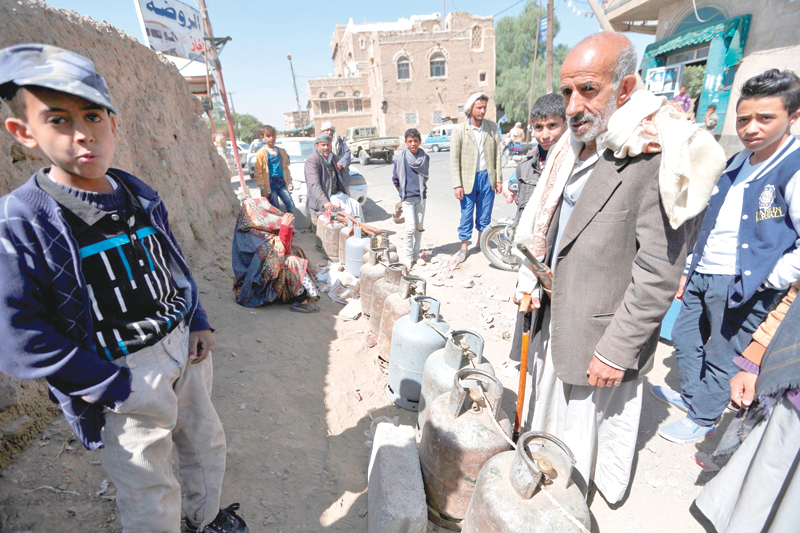

SANAA: Residents of Yemen’s rebel-held capital said on Thursday rising food and fuel prices were making life increasingly difficult because of a blockade that the UN warned could bring the world’s worst famine in decades.
Sanaa residents said the price of gasoline jumped 50 per cent, the value of the national currency plummeted and prices of basic goods rose after the coalition sealed off Yemen’s borders on Monday. “The situation was already catastrophic,” said taxi driver Saeed Kanaf.
The Gulf Arab coalition has enforced a de facto blockade on land crossings and air and sea ports, and the UN and other international organisations are required to take permission for sporadic aid deliveries.
On Monday the coalition said it was closing Yemen’s borders and ports, accusing rebels of being behind an attack in which a missile was intercepted near Riyadh airport over the weekend.
The coalition said the tightened blockade was temporary and aimed at filling gaps in inspection procedures to halt the “smuggling of missiles and military equipment”.
The UN, which had already listed Yemen as the world’s number one humanitarian crisis, responded to the coalition decision with dismay, warning that the situation was already “catastrophic” in the country.
UN aid chief Mark Lowcock, speaking to reporters after a closed-door Security Council session on Wednesday, warned that “it will be the largest famine the world has seen for many decades, with millions of victims.”
Around 17 million Yemenis are in desperate need of food, seven million of whom are at risk of famine. Cholera has caused more than 2,000 deaths.
On Tuesday, a Red Cross shipment of chlorine tablets, which are used for the prevention of cholera, was blocked at Yemen’s northern border, the International Committee for the Red Cross said.
In Sanaa, traffic has been backed up at petrol stations, where the price at the pump had jumped by half and diesel prices had nearly tripled.
The Yemeni riyal, trading at 370 to the dollar ahead of the Saturday missile launch, has already dropped in value — with the rate now at 402, according to money changers in Sanaa.
Gas cylinders, relied on for cooking, vanished from circulation in the wake of the renewed blockade, only reappearing on Thursday following the intervention of rebel leaders.
Some civil servants have not received salaries in 10 months, forcing many to moonlight in order to survive.
To quell the general unrest, the cash-strapped rebel administration nonetheless managed to distribute half of those unpaid wages over the past week. — AFP
Oman Observer is now on the WhatsApp channel. Click here



